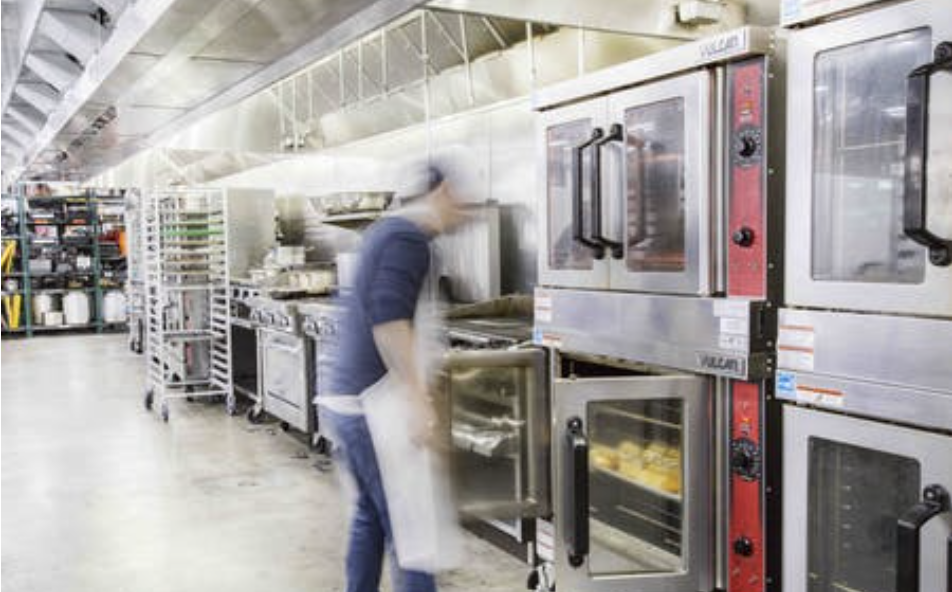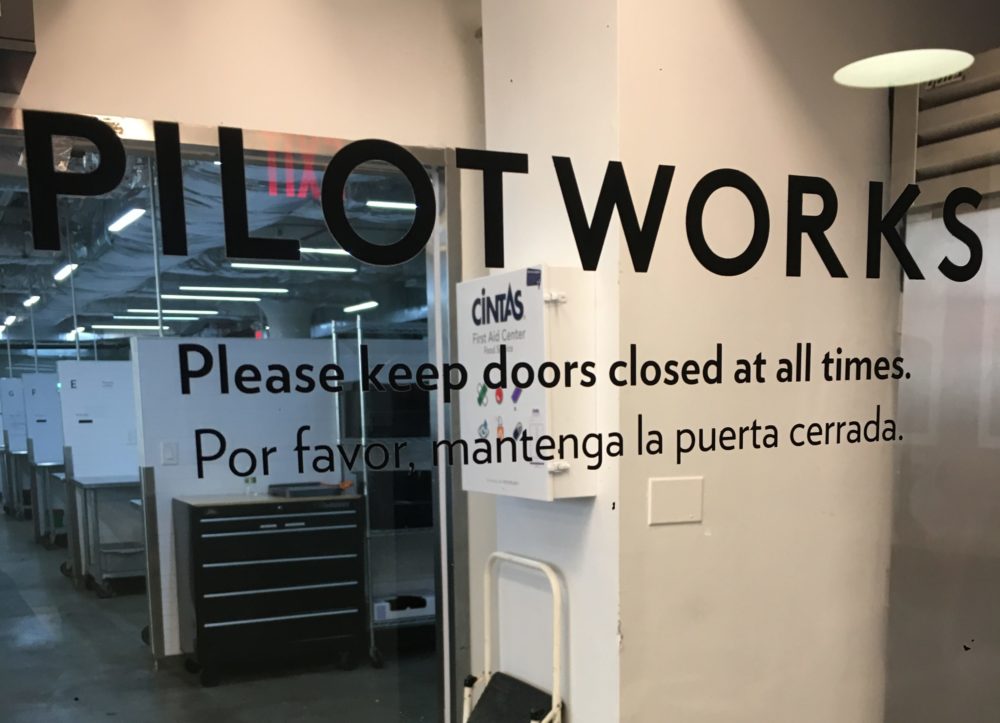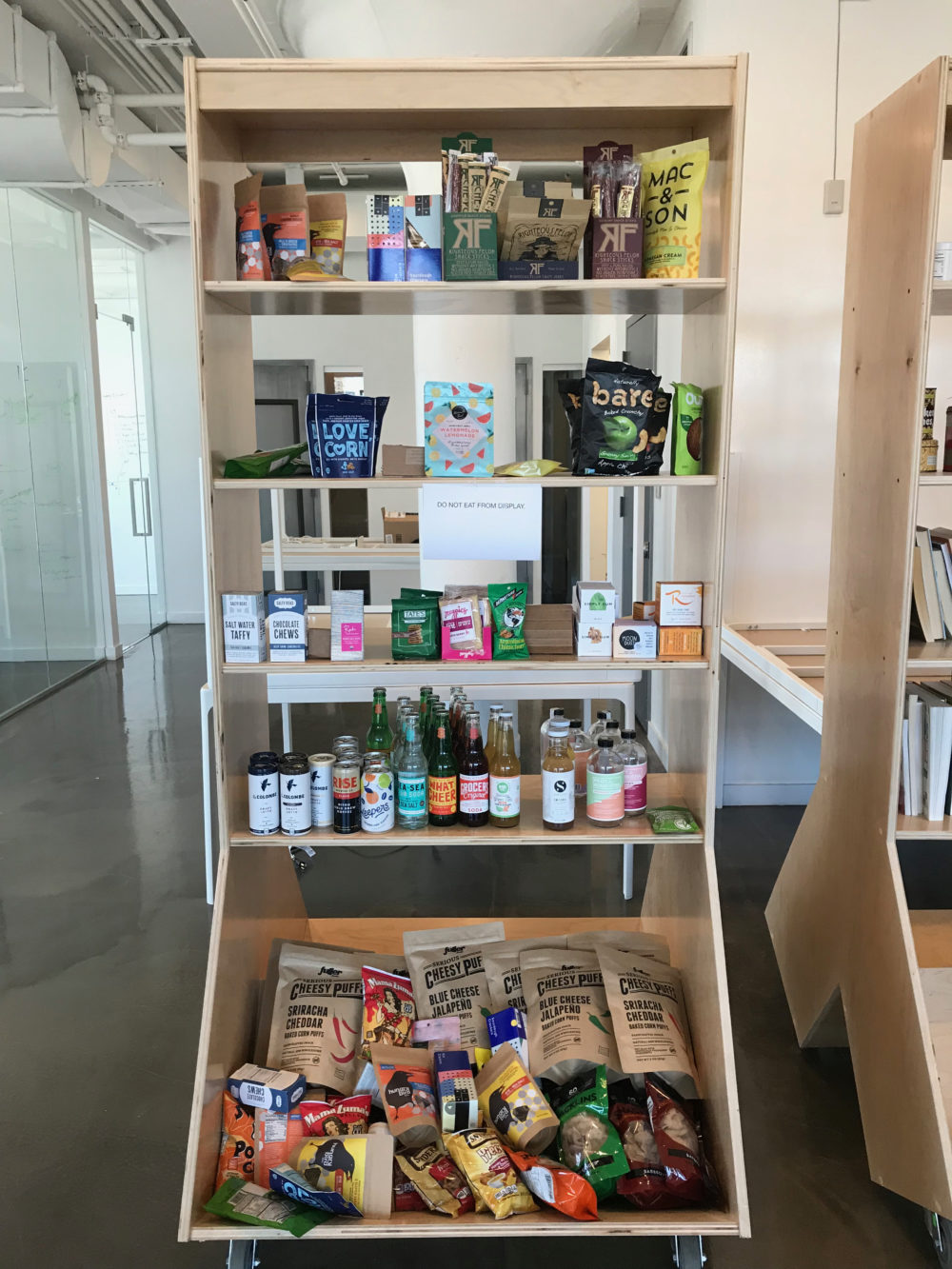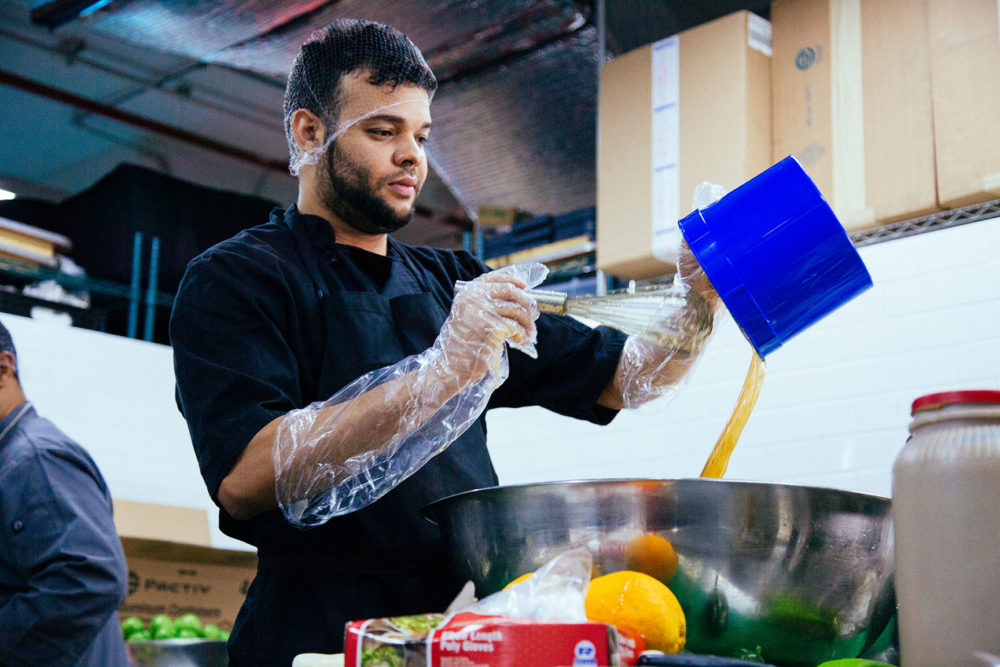Just as the cake seemed baked, it has fallen apart. Nearly 200 displaced food-oriented businesses were preparing to return to the former Pilotworks community kitchen in Brooklyn when they were told this week that an agreement to reopen the facility had collapsed, leaving the startup businesses locked out during the busiest season of the year.
Culinary entrepreneur Adam Melonas, who had agreed to take over the shuttered incubator, told the former Pilotworks members in an email Tuesday that the deal was off, blaming conditions in the kitchen that do not “match the extremely high standards by which our company is known to operate.”
Melonas, founder of Chew, a food innovation lab in Cambridge, Mass., had planned to rebrand the kitchen as Nursery. “This news is heartbreaking for me personally, as I know it is for many of you,” Melonas wrote in the email. “[W]e paused our lives and risked everything, in belief of this community and our ability to change the lives and companies of each and everyone of you.”
Acumen Capital Partners, which entered the agreement for the Melonas firm to take over the Brooklyn facility, did not return a request for comment from The Bridge. Acumen bought the old Pfizer building on Flushing Avenue for $26 million in 2011 and turned it into a center of culinary innovation, with the startup incubator occupying a portion of the massive, eight-story building.
The New York City Economic Development Corp. (NYC EDC), which backed the launch of the incubator in 2015 with $1.3 million in funding, told The Bridge in a statement, “Unfortunately, negotiations between the landlord and the prospective operator were not successful.”

When it was up and running, the entrepreneurs at the facility were focused primarily on creating foods, condiments and drinks with a level of specificity that is rarely seen in major brands (Photo courtesy of FoodWorks)
City Council Member Robert Cornegy, Jr., who represents the district that includes the Pfizer building, and who publicly supported the initial legislative funding for the space, told The Bridge in an email that he is “frustrated by Nursery’s decision to abandon their plans to take over the Pilotworks space.” He added: “This news so close to the Christmas holiday is extremely disappointing.”
Launched as Brooklyn FoodWorks, the facility got off to a roaring start, but has had a troubled management history. The original proprietors were soon bought out by food entrepreneurs Nick Devane and Mike Dee, who raised $15 million in venture capital and went on an aggressive expansion to other cities under the brand name Pilotworks.
Then in mid October, the owners abruptly closed the facility, citing an inability to raise more funds. The sudden move left the fledgling food-and-beverage companies out in the cold. The timing was particularly bad for their businesses, coming at the beginning of the holiday season.
Less than two months later, however, their spirits rose when Melonas, who has been described as a Willy Wonka of culinary innovation, agreed to take over the Brooklyn facility. In an email to Pilotworks members, he said his company was “honored to open our doors to this wonderful and inspiring community of makers.”
Several of the small-business owners who received that message told The Bridge they were looking forward to getting back to work in the bustling kitchen. They hoped to salvage their fourth-quarter revenues, and were eager to cook side-by-side with other members who’d banded together to help keep each other afloat in the wake of the Pilotworks debacle.

Back in October, the startup kitchen was abruptly closed, with resident companies getting only a few days to clear out (Photo by Michael Stahl)
Then came this week’s email from Melonas. “[W]e are devastated to be the bearers of this news,” he wrote. “We made every effort possible to give this new undertaking the best possible chance of success. We believe deeply in the mission of all of your businesses and the mutual support you have shown one another continues to be an inspiration to us all.”
Former Pilotworks members who had anticipated a return to the kitchen under the Nursery banner expressed frustration and disbelief over the latest development. “I don’t even know what to say. I have no idea how this went so wrong,” said Anke Albert, who owns Anke’s Fit Bakery, in a text to The Bridge.
Anjali Bhargava, the founder of Bija Bhar, which produces a turmeric-based elixir, said in an email, “I was counting on this. Feels like a big blow after I had gotten my hopes up and made plans accordingly.” Bhargava added that she’d like to know at some point soon if the situation is “resolvable or if we really need to give up on being back in the space.”
Veggie Grub proprietor Chef Rootsie said in a succinct text to The Bridge, “Will the madness ever end?”

At a Pilotworks event, an array of products launched at the facility demonstrated its diversity (Photo by Angelica Frey)
“[O]ur hearts continue to break for these producers,” said Cheryl Clements, founder and CEO of PieShell, a food- and beverage-focused crowdfunding platform, in an email to The Bridge. Her organization recently launched a campaign to raise money for the former Pilotworks members. “This is not what they needed to hear with the holidays all around us.”
In his email breaking the news, Melonas said that the NYC EDC, which had interviewed several prospective suitors to take over the space leading up to the Nursery agreement, would contact them to “discuss alternative solutions.” In its statement, the EDC said it “prides itself on fostering economic opportunities across New York City and will continue to offer aid to affected food businesses.”
The EDC has reached out to the displaced Pilotworks members “to reemphasize our commitment to independent food and beverage makers” and to offer financial assistance and other resources.
“We look forward to our continued collaborations with membership to ensure they have the best opportunities to succeed in the shared kitchen and incubator space,” the statement said.
In spite of all this disappointment, stakeholders in this troubling Pilotworks saga may have dodged a bullet with Nursery’s evacuation. After reporting two weeks ago that Melonas and his team would take over the space, The Bridge received several emails from former Chew employees, who called Melonas a difficult and deceptive manager.
The Bridge spoke with two of them, a man and a woman who didn’t want their names used because they feared retaliation from Melonas, they said. They discussed their time at Chew a few years ago, when the company had around 20 employees. According to both, Melonas carried himself in the office like a dictator, talking down to them during all-hands staff meetings each morning. “He was really big on shaming,” the woman said.

Originally launched as Brooklyn FoodWorks, the incubator had 16 workstations for entrepreneurs to develop new products (Photo courtesy of FoodWorks)
Describing Melonas as someone whose “ego can’t fit in the building,” she said that Melonas demanded a lot of employees, but then often didn’t fulfill his own commitments. “He would keep us there till 11 o’clock at night, redoing stuff that he wanted to send to potential clients,” the woman said, recalling that Melonas distributed paychecks weeks later than expected and failed to meet such financial promises as the reimbursement of relocation costs.
The Bridge reached out to Nursery’s public-relations firm for comment on these allegations, but received no response.
The male source confirmed the woman’s stories, and said Melonas would frequently “mislead clients” about the productivity and goings on in the company. In a press release written when Nursery was set to occupy the Pilotworks space, Chew boasted of a client list consisting of “the world’s largest and most influential food and beverage companies.” With Chew, the companies had “created more than 1,400 products.”
The female former employee told The Bridge those numbers are “extremely inflated to say the least,” and the male former employee concurred. “What we did all day was make iteration after iteration of the same product over and over again,” he said. “I think it’s like a dozen products that actually have been on a store shelf … and of those at least six have been discontinued already.”
The two sources said about 40 former Chew workers keep in touch in a private Facebook group and email, likening the collective to a support group. “After going through an experience like that with someone, you’re like war buddies,” the male source said. “We’re all pretty tight.” A barrage of Chew company reviews posted by anonymous current and former employees on Glassdoor, a job-finder website, paint a similar picture of the company’s corporate culture.
Given the reports that the Pilotworks brass had a track record of failed businesses, and may also have unwisely spent company funds, such details about Nursery raise questions about the vetting process in finding occupants for the old Pfizer building’s abandoned kitchen. In an email, the EDC said bringing in Nursery was the call of building owners Acumen Capital Partners, as the EDC was “not involved with Chew’s discussions or agreement with the landlord.”
Council Member Cornegy said he hasn’t given up on the space as a food incubator, which in its brief lifespan had generated dozens of new products and companies. “I remain committed to helping find a suitable tenant for the space so we can restore this meaningful resource for the many small business owners who relied on it.”